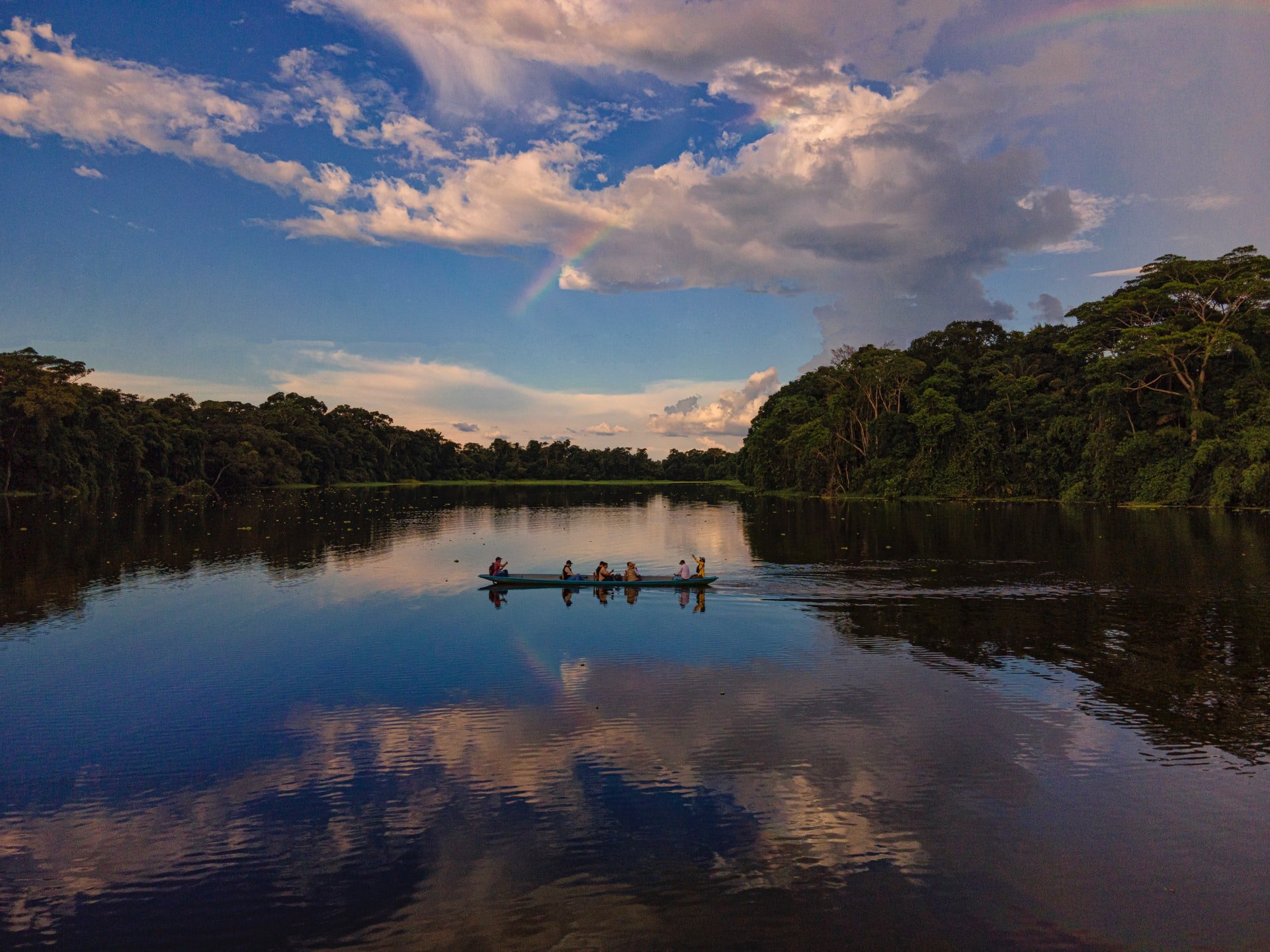Ministerio del Ambiente, Agua y Transición Ecológica del Ecuador (2013). Proyecto Socio Bosque. Available at: https://www.ambiente.gob.ec/wp-content/uploads/downloads/2015/07/SOCIO-BOSQUE.pdf (Accessed: 20 July 2022).
Ministerio del Ambiente, Agua y Transición Ecológica del Ecuador (2022). Proyecto Socio Bosque. Available at: https://sociobosque.ambiente.gob.ec/ (Accessed: 20 July 2022).
Bueb, B., Tröltzsch, J., Reichwein, D., Oldenburg, C., Favero, F. (2021): Case Studies of Sustainable Adaptation Pathways. Appendix to the Paper "Towards Sustainable Adaptation Pathways: A concept for integrative actions to achieve the 2030 Agenda, Paris Agreement and Sendai Framework". Climate Change | 48/2021. Dessau-Roßlau: Umweltbundesamt
Global Forest Watch (2022). Ecuador. Available at: https://www.globalforestwatch.org/dashboards/country/ECU/ (Accessed: 20 July 2022).
De Konig, F., Aguiñaga, M., Bravo, M., Chiu, M., Lascano, M., Lozada, T., & Suarez, L. (2011): Bridging the gap between forest conservation and poverty alleviation: The Ecuadorian Socio Bosque program. Environmental Science and Policy, 14 (2011), 531–542.
Oppla (2022). Ecuador: The Socio Bosque Program. Available at: https://oppla.eu/casestudy/18372 (Accessed: 20 July 2022).
KfW Entwicklungsbank (2022): Programm Waldschutz (Sociobosque) und REDD. Available at: https://www.kfw-entwicklungsbank.de/ipfz/Projektdatenbank/Programm-Waldschutz-Sociobosque-und-REDD-27003.htm (Accessed: 20 July 2022).
Perafán, C, Pabón, M. 2019. Comunidades sostenibles: Evaluación socio cultural del Programa Socio Bosque. Inter-American Development Bank (IADB). Available at: https://publications.iadb.org/es/comunidades-sostenibles-evaluacion-socio-cultural-del-programa-socio-bosque (Accessed: 20 July 2022).
United Nations Development Program (2018). Environmental and Social Assessment of Ecuador’s Socio Bosque Programme. Available at: https://www.ambiente.gob.ec/wp-content/uploads/downloads/2018/09/ESA-Socio-Bosque-Ecuador-Report-11-09-18-f.pdf (Accessed: 20 July 2022).
United Nations Development Program (2018). ANNEX A: Matrix for the Proyecto Socio Bosque de Conservación: Policy, Law and Regulations Analysis alignment with UNDP SES Standards and Cancún Safeguards. Available at: https://www.ambiente.gob.ec/wp-content/uploads/downloads/2018/09/Annex-A-to-ESA-Socio-Bosque-Ecuador_PLR-Analysis-11-09-18-f.pdf (Accessed: 20 July 2022).

